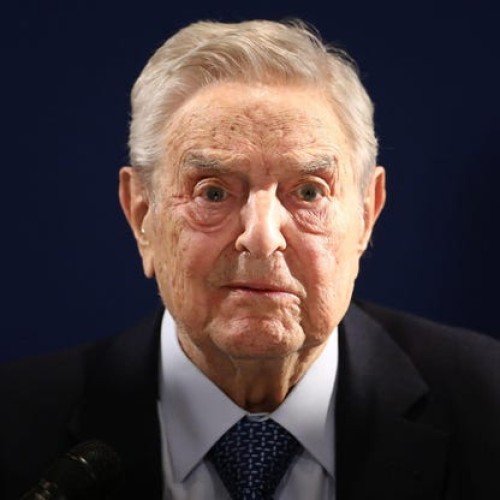
George Soros is a Hungarian-American billionaire investor and philanthropist, known for his contributions to progressive causes and his support for democratic governance around the world. Born in Budapest in 1930, Soros survived the Nazi occupation of Hungary and later fled the country in 1947 after the Communist takeover. He went on to study at the London School of Economics and eventually made his fortune as a hedge fund manager.
Soros is perhaps best known for his work as a philanthropist, having donated billions of dollars to various causes over the years. He is the founder of the Open Society Foundations, a network of organizations that promote human rights, democracy, and civil society around the world. Through the Open Society Foundations, Soros has supported a range of initiatives, including efforts to combat authoritarianism, improve public health, and advance educational opportunities for disadvantaged communities.
The Open Society Foundations is a network of organizations founded and funded by billionaire philanthropist George Soros. Its mission is to promote democracy, human rights, and civil society around the world.
The Open Society Foundations support a wide range of initiatives, including advocacy for social justice, democratic governance, and human rights. The organization works to promote transparency and accountability in government, advance public health, and improve educational opportunities for underserved communities.
The Open Society Foundations operates in over 100 countries, with a focus on regions where there are significant challenges to democracy and human rights. Its work includes supporting organizations that work to promote human rights, providing funding for investigative journalism, and supporting initiatives to combat corruption and authoritarianism.
The Open Society Foundations also support a number of specific programs and initiatives, such as the Open Society Justice Initiative, which seeks to promote legal accountability and human rights, and the Open Society Public Health Program, which works to improve public health policies and outcomes around the world.
Despite its mission to promote democracy and human rights, the Open Society Foundations has faced criticism from some who argue that its funding of progressive causes is an attempt to manipulate political outcomes. The organization has also been the target of various conspiracy theories and false accusations, including claims that it is part of a secret cabal of globalists seeking to control the world.
Despite these criticisms, the Open Society Foundations remains a highly influential organization in the world of philanthropy and civil society. Its work has had a significant impact on a range of issues, and its ongoing efforts to promote democracy, human rights, and civil society are sure to continue to be an important force for positive change around the world.
In addition to his philanthropic work, Soros has been a vocal critic of a number of political regimes and policies. He has spoken out against the war in Iraq, the treatment of migrants and refugees, and the rise of authoritarianism in countries like Russia and China. Soros has also been a strong advocate for social justice issues, including criminal justice reform, LGBTQ rights, and gender equality.
Despite his philanthropic efforts, Soros has faced a fair amount of criticism and controversy over the years. Some conservatives have accused him of trying to manipulate elections and overthrow governments through his funding of progressive causes. Soros has also been the target of various conspiracy theories, with some claiming that he is part of a secret cabal of globalists who seek to control the world.
George Soros and his philanthropic work have faced a fair amount of criticism and controversy over the years. Some conservative politicians and media outlets have accused him of using his wealth to manipulate elections and promote progressive causes in order to achieve political goals. This has led to the spread of various conspiracy theories about Soros and his work, including claims that he is part of a secret cabal of globalists who seek to control the world.
Soros has also been criticized by some for his support of various progressive causes, such as his funding of pro-democracy initiatives and his support for criminal justice reform. Critics have argued that Soros is attempting to undermine traditional values and promote an agenda that is antithetical to conservative principles.
Despite these criticisms, Soros and his organizations have continued to play an important role in promoting democratic governance, human rights, and civil society around the world. The Open Society Foundations have supported a wide range of initiatives and organizations, from advocacy for LGBTQ rights to support for independent media outlets in countries with restrictive press laws. Soros's philanthropy has also helped to fund medical research, support educational opportunities for underserved communities, and advance environmental causes.
Despite the controversy surrounding his work, Soros remains committed to his vision of a world in which democratic governance, human rights, and civil society are respected and protected. His ongoing efforts to promote these values through his philanthropy are sure to continue to have a significant impact on the world in the years to come.
Despite these criticisms, Soros remains a highly influential figure in the worlds of finance, philanthropy, and politics. His work has helped to advance a number of important causes, and his contributions to the fight for democracy and human rights have been widely recognized. While he may not be without his detractors, there is no denying that Soros has had a profound impact on the world, and his legacy is sure to endure for years to come.








